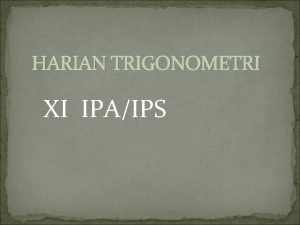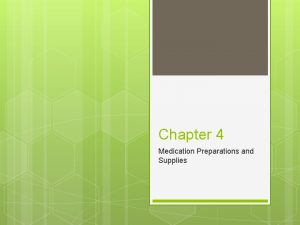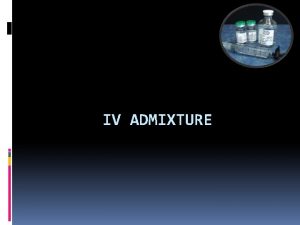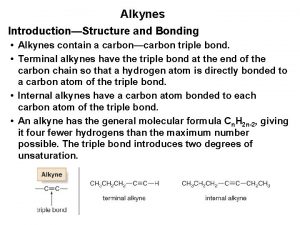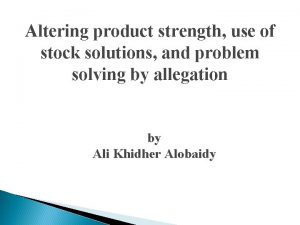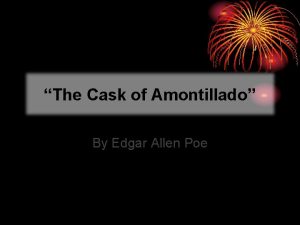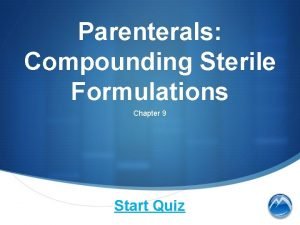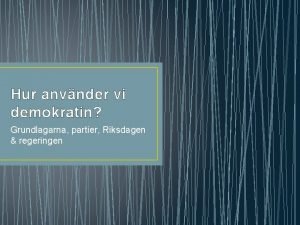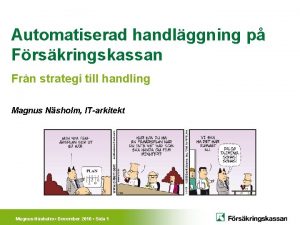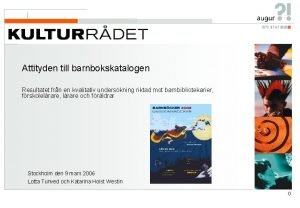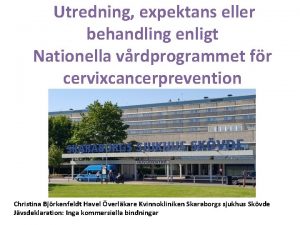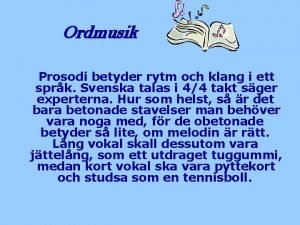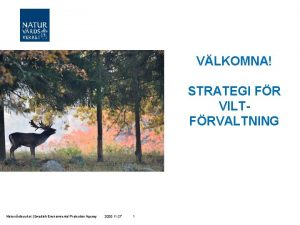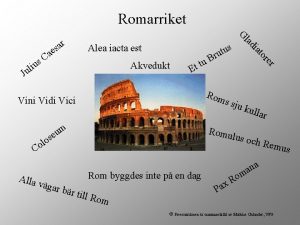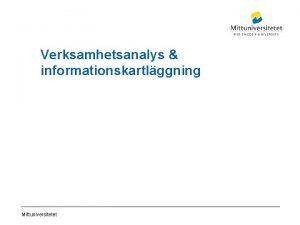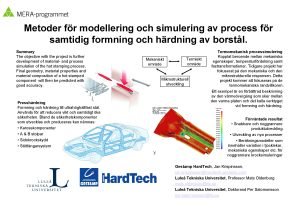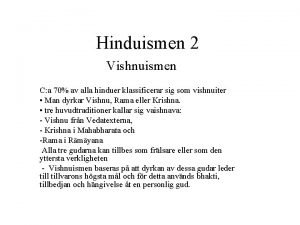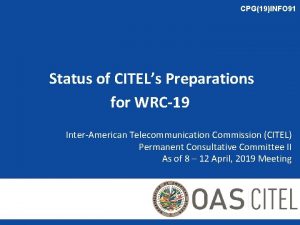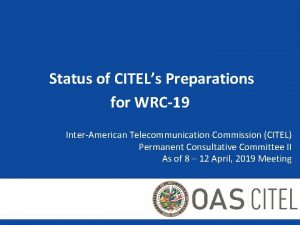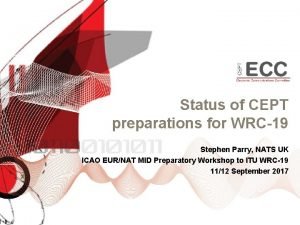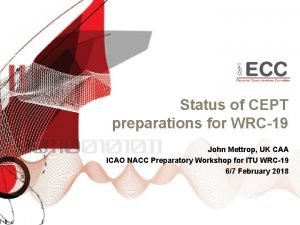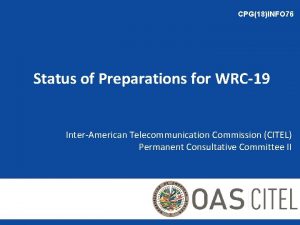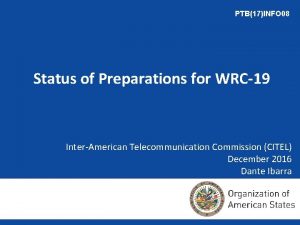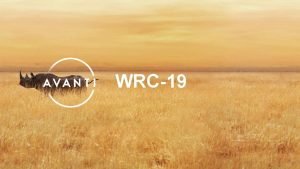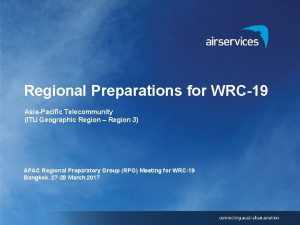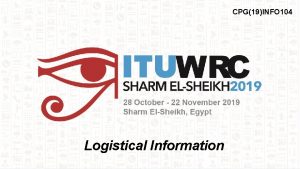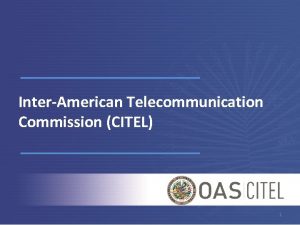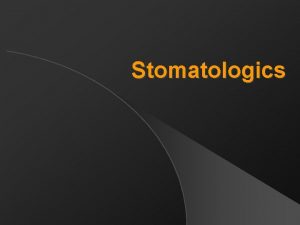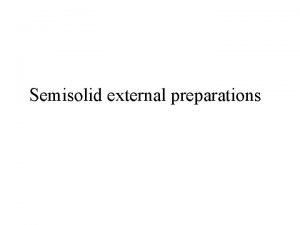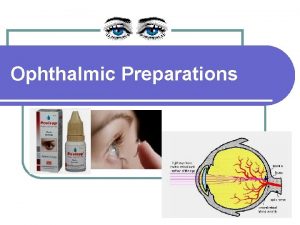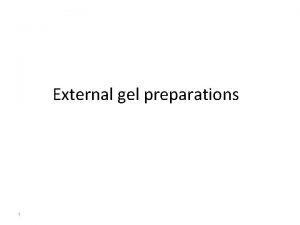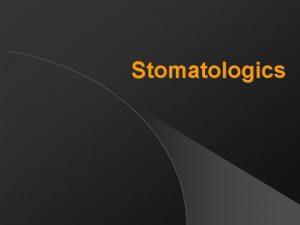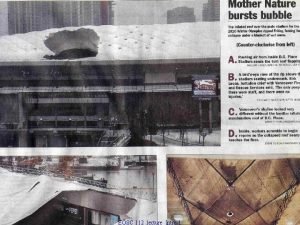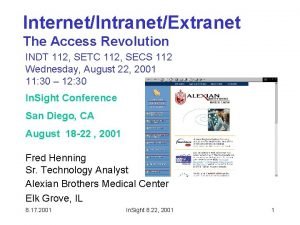CPG19INFO 112 Status of CITELs Preparations for WRC19

























- Slides: 25

CPG(19)INFO 112 Status of CITEL’s Preparations for WRC-19 Inter-American Telecommunication Commission (CITEL) Permanent Consultative Committee II As of 12 – 16 August, 2019 Meeting Inter-American Telecommunication Commission (CITEL)

Working Group within PCC. II Chair Vice. Chairs • Carmelo Rivera, United States (carmelo. rivera@noaa. gov) • Victor Martinez, Mexico (victor. martinezv@ift. org. mx) • Carol Andrea Sosa, Colombia (carol. sosa@ane. gov. co) 2 Inter-American Telecommunication Commission (CITEL)

WRC Working Group Structure SGT 1 • Mobile & Fixed (1. 11, 1. 12, 1. 13, 1. 14, 1. 15, 1. 16, 9. 1 (9. 1. 1, 9. 1. 2, 9. 1. 5, 9. 1. 6, 9. 1. 8)) - Coordinators: Luciana CAMARGOS (Brazil) and Jose COSTA (Canada) SGT 2 • 2 A: Amateur, Maritime & Aeronautical (1. 1, 1. 8, 1. 9, 1. 10, 9. 1. 4)) Coordinator: Michael RAZI (Canada) • 2 B: Space Science (1. 2, 1. 3 and 1. 7) - Coordinator: Corali ROURA (USA) SGT 3 • Satellite Regulatory (1. 4, 1. 5, 1. 6, 7, 9. 1 (9. 1. 3, 9. 1. 7, 9. 1. 9), 9. 2 (satellite), 9. 3) - Coordinators: Brandon MITCHELL (USA) and Chantal BEAUMIER (Canada) SGT 4 • General Regulatory, Future Work & Other (2, 4, 8, 9. 2 (non-satellite), 10) - Coordinators: Victor MARTINEZ (Mexico) and Carol Andrea SOSA(Colombia) 3 Inter-American Telecommunication Commission (CITEL)

Coordinators 1. 1 Flávio ARCHANGELO (B) flavio. archangelo@labre. org. br 1. 15 José COSTA (CAN) jose. costa@ericsson. com 1. 2 Thomas Von Deak (USA) thomas. vondeak@aces-inc. com 1. 16 Jayne STANCAVAGE (USA) jayne. stancavage@intel. com 1. 3 James MENTZER (USA) james. mentzer@noaa. gov 2/4 Carolina JACQUET (PRG) carolina. jacquet@conatel. gov. py 1. 4 Giselle CREESER (USA) gisellec. creeser@intelsat. com 7 Michelle CALDEIRA (B) michelle. caldeira@ses. com 1. 5 Robert NELSON (USA) robert. nelson@fcc. gov 9. 1. 1 Sergio MARQUEZ (MEX) sergio. marquez@ift. org. mx 1. 6 Marcella OST (CAN) marcella. s. ost@boeing. com 9. 1. 2 Amy SANDERS (USA) asanders@ntia. gov 1. 7 Carlos Flores (USA) carlos. flores@noaa. gov 9. 1. 3 Marcella OST (CAN) marcella. s. ost@boeing. com 1. 8 Donald JANSKY (USA) don@jansky-barmat. com 9. 1. 4 Sandra WRIGHT (USA) sandra. a. wright@faa. gov 1. 9. 1 Louis BELL (USA) louis. bell@fcc. gov 9. 1. 5 Guadalupe PEREZ (MEX) guadalupe. perez@ift. org. mx 1. 9. 2 Louis BELL (USA) louis. bell@fcc. gov 9. 1. 6 Flavio ARCHANGELO (B) flavio. archangelo@labre. org. br 1. 10 Luíz FERNANDO (B) lfsouza@embraer. com. br 9. 1. 7 Hugo Mario TRIVIÑO (CLM) htrivino@mintic. gov. co 1. 11 David TEJEDA (MEX) david. tejeda@ift. org. mx 9. 1. 8 Sergio MARQUEZ (MEX) sergio. marquez@ift. org. mx 1. 12 Francisco SOARES (B) fsoares@qti. qualcomm. com 9. 1. 9 Jennifer MANNER (USA) jennifer. manner@echostar. com 1. 13 Camilo ZAMORA (CLM) czamora@tmgtelecom. com Geraldo NETO (B) geraldo@tmgtelecom. com Michael MULLINIX (USA) michael. mullinix@fcc. gov Sergio MARQUEZ (MEX) sergio. marquez@ift. org. mx 9. 2 1. 14 Eduardo LIMA (B) eduardo. lima@accesspartnership. com 10 Christopher CASARRUBIAS Christopher. casarrubias@accesspartnership. com Marc DUPUIS (CAN) marc@oneweb. net Carol SOSA (CLM) carol. sosa@ane. gov. co Charles Glass (USA) cglass@ntia. gov 4 Inter-American Telecommunication Commission (CITEL)

Inter – American Proposals : Definitions DRAFT INTER-AMERICAN PROPOSAL (DIAP): PP that has been supported by at least one other Member State. INTER-AMERICAN PROPOSAL (IAP): DIAP supported by at least six Members States and not opposed by more than 50% of the number of supports obtained. 5 Inter-American Telecommunication Commission (CITEL)

Meeting Schedule Dates/Location WRC-19 CITEL WG Action Plan August 12 -16, 2019 Ottawa, Canada - Final meeting to gain support for preliminary proposals - Only DIAPs of future agenda items and IAPs are circulated to all Member States October 27, 2019 Sharm-El Sheik, Egypt - Final meeting to verify attendance and assign spokespersons 6 Inter-American Telecommunication Commission (CITEL)

Overall Status of Preparations Eight meetings to date • Discussed all 24 agenda items and 30 sub-issues Ended discussion and agreed to forward the following agenda item IAPs to the ITU: • IAPs on virtually all agenda items • Considering all ADDs, MODs and SUPs total of 276 proposals forwarded 7 Inter-American Telecommunication Commission (CITEL)

Session 1 – IMT Related Issues Agenda Item 1. 13 (24. 25 -27. 5 GHz) • MOD Art 5 to add a primary allocation to Mobile Service in 24. 25 -25. 25 GHz (except aeronautical mobile) • Identification for IMT in the 24. 25 -27. 5 GHz frequency range • MOD to No. 5. 338 A to protect passive services in 23. 6 -24 GHz • MOD Res. 750 to include: • -28 d. BW in any 200 MHz of the EESS (passive) band for IMT base stations • -28 d. BW in any 200 MHz of the EESS (passive) band for IMT mobile stations • Active service band 24. 25 -24. 75 GHz 8 Inter-American Telecommunication Commission (CITEL)

Session 2 – AI 1. 13 (other bands) plus AIs 9. 1. 1, 9. 1. 2 and 9. 1. 8 • AI 1. 13 Other Bands: Identification for IMT NOC 37 - 43. 5 GHz (w/WRC Resolution) 31. 8 – 33. 4 GHz 47. 2 – 48. 2 GHz (w/o regulatory constraints) 45. 5 – 47 GHz 48. 2 – 50. 2 GHz 66 – 71 GHz 71 – 76 & 81 – 86 GHz No position on 50. 4 -52. 6 GHz • 9. 1. 1 NOC to Articles and Appendices. MOD to Res. 212, View 2 (non regulatory updates) • 9. 1. 2 NOC to Region 2. Region 1 and 3 issue. • 9. 1. 8 NOC no need to identify specific spectrum 9 Inter-American Telecommunication Commission (CITEL)

Session 3 High Altitude Platforms (HAPS) Frequency Band 21. 4 -22 GHz Method B 2 (R 2 only) 24. 25 -27. 5 GHz Method B 2 (R 2 only) 38 -39. 5 GHz Method B 2 47. 2 -47. 5 / 47. 9 -48. 2 GHz Method B 2 Identification MOD Art 5 allowing HAPS to operate primary in the fixed service allocation ADD 5. B 114 adding footnote to allow HAPS ADD Res. B 114 allowing HAPS in Region 2 ADD a primary fixed service allocation to the 24. 25 -25. 25 GHz band identify HAPS in the band in Region 2 MOD Art 5 to add a footnote to the 25. 25 -27. 5 GHz band in Region 2 ADD Res. C 114 allowing HAPS in Region 2 MOD Art 5 to add footnote to the 38 -39. 5 GHz band allowing HAPS to operate in the fixed service ADD Res. G 114 allowing HAPS to operate in the fixed service allocation in 38 -39. 5 GHz on a worldwide basis MOD Art 5 to identify HAPS on a global level in the 47. 2 -47. 5 GHz and 47. 9 -48. 2 GHz MOD Res. 122 to ensure protection of incumbent services 10 Inter-American Telecommunication Commission (CITEL)

Session 4 WAS/RLAN related issues, AI 1. 16 Frequency Band 5150 -5250 MHz MOD NOC IAP to modify Res 229 based on Method A 2 to permit outdoor RLAN use in the band with associated power limits and elevation angle mask 5250 -5350 MHz IAP Method B NOC (Only Method) 5350 -5470 MHz IAP Method C NOC (Only Method) 5725 -5850 MHz 5850 -5925 MHz IAP Method D 1 NOC IAP Method E NOC (Only Method) 11 Inter-American Telecommunication Commission (CITEL)

Session 4 (Cont’d) Plus information on AIs 1. 11, 1. 12, 1. 15 and 9. 1. 5 • 1. 11 NOC IAP–Regional and global harmonization can be satisfied through ITU-R Recs and Reports • 1. 12 NOC IAP –Regional and global harmonization can be satisfied through ITU-R Recs and Reports • 1. 15 IAP MOD – Art. 5 in portions of the 275 -450 GHz band for land mobile and fixed service applications • 9. 1. 5 IAP Approach B MOD Art. 5 (5250 -5350 MHz) Revise Nos. 5. 447 F and 5. 450 A (5470 -5725 MHz) to remove recommendations incorporated by reference while maintaining the current methods of providing co-existence between RLANS and the radiolocation service 12 Inter-American Telecommunication Commission (CITEL)

Session 5 – Maritime related issues, AIs 1. 8, 1. 9. 1, 1. 9. 2 • 1. 8 A IAP Method A 2; MOD Art. 5 to allow use of NAVDAT system in 415 -495 k. Hz and 505 -526. 6 k. Hz • ADD footnote to identify the 495 -505 k. Hz band for NAVDAT system • 1. 8 B IAP MOD Art. 5, Table 15 -2 of Appendix 15, No. 33. 50 and No. 33. 53 of Article 33 to enable the introduction of an additional GMDSS satellite system in the band 1616 -1626. 5 MHz based on Method B 1 • 1. 9. 1 Group A IAP Method A 1; MOD Appendix 18 for Group A permitting operation on AIS 1, AIS 2 and Ch 70 in Appendix 18. Group B IAP Method B 1; identify Channel 2006 for AMRD Group B in Appendix 18 with power limit and antenna height restrictions. • 1. 9. 2 IAP Method B option 2; MOD Art. 5 for a primary MMSS allocation in the 156. 8375 – 161. 7875 MHz band for VDES-SAT MMSS uplink and downlink 13 Inter-American Telecommunication Commission (CITEL)

Session 5 – Cont’d Plus information on AIs 1. 1, 1. 10, and 9. 1. 4 • 1. 1 IAP NOC for Region 2. It is a Region 1 issue • 1. 10 IAP NOC There is no requirement for additional spectrum allocations for GADSS • 9. 1. 4 IAP NOC and SUP Res 763 Studies have shown that further consideration is needed with regards to the definition of a suborbital vehicle in the Radio Regulations and under which radiocommunications service(s) they should operate 14 Inter-American Telecommunication Commission (CITEL)

Session 6 Science related issues, AIs 1. 2, 1. 3 and 1. 7 • 1. 2 IAP ADD in-band power limits in the frequency bands 399. 9 -399. 99 MHz (MSS) and 401 -403 MHz (Met. Sat/EESS) with a transition date of 2029. • 1. 3 IAP MOD Art. 5 Met. Sat/EESS (downlink) upgrade to a primary allocation subject to a not claiming protection provision and a mandatory pfd limit to protect terrestrial services. • 1. 7 IAP NOC Art. 5 (Method A) and SUP Res 659 • 400. 15 -420 MHz - results of studies showed that sharing between incumbent services and NGSO short duration missions is not feasible. • 137 -138 MHz and 148 -149. 9 MHz - studies regarding adjacent band compatibility between AM(R)S systems below 137 MHz and non-GSO short duration mission satellite systems in the 137 -138 MHz (s-E) and 148 -149. 9 MHz (E-s) band are still being considered by the expert group. 15 Inter-American Telecommunication Commission (CITEL)

Session 7 ESIM (AI 1. 5) & NGSO FSS (AI 1. 6) related issues • 1. 5 IAP MOD Art. 5 in the 17. 7 -19. 7 GHz and 27. 5 -29. 5 GHz bands, or portions thereof, to provide the conditions in a WRC Resolution for the operation of ESIMs. WRC Resolution contains: • • • Addresses protection of the NGSO MSS feeder-links in 29. 1 -29. 5 GHz by including specific provisions in a new Annex 1 bis Extends non-GSO FSS protections to the 27. 5 -29. 1 GHz, and not just to 28. 6 GHz. Includes pfd mask for protection of fixed and mobile services in 27. 5 -29. 5 GHz from aeronautical ESIM – no co-channel operation unless agreed • 1. 6 IAP MOD Art. 22 technical regulatory provisions to enable the introduction of non-GSO satellite systems that will protect GSO networks and provide maximum spectral efficiency • Issue A – IAP similar to Method A with new Resolutions that contain both the calculation procedures and GSO reference links for sharing between NGSO systems and GSO networks • Issue B – MOD Res 750 to revise both NGSO and GSO limits 16 Inter-American Telecommunication Commission (CITEL)

Session 7 – AI’s 1. 4, 9. 1. 3, 9. 1. 9 • 1. 4 IAP ADD provisions to Art. 59 and Appendix 30 for BSS operating in 11. 7 -12. 5 GHz in Region 1, 12. 2 -12. 7 GHz in Region 2 and 11. 7 -12. 2 GHz in Region 3 • 9. 1. 3 IAP NOC to Art. 21 and Art. 22. ITU-R studies show that it would be very difficult to operate a non-GSO circular-orbit system for the purposes of a global broadband network in the 6/4 GHz frequency bands. • 9. 1. 9 IAP MOD Art. 5 allocation to the FSS in 51. 4 -52. 4 GHz and 52. 4 -52. 6 GHz 17 Inter-American Telecommunication Commission (CITEL)

Session 8 Satellite regulatory issues, AIs 7 relevant issues (e. g. issues A, I) • 7 A MOD Art. 11 • • Option A – Continuous 90 day period for confirming BIU Milestone-based approach to determine BIU of non-GSO satellites in specific bands and services • Timing and percentages that apply in regular and transitional arrangements (10%/50%/100% ; 3/5/7 years) Commencement date of 1 January 2021 BR to report on any difficulties in implementing the Resolution to WRC-23 • 7 B MOD Appendix 5 to extend the application of the coordination arc approach based on ± 8 orbital separation to MSS frequency assignments to a GSO space station in the 29. 5 -30/19. 7 -30 GHz bands. 18 Inter-American Telecommunication Commission (CITEL)

Session 8 Satellite regulatory issues, AIs 7 relevant issues (e. g. issues A, I) • • 7 C 1 MOD Art. 11 Proposing a milestone-based approach to determine BIU of non-GSO satellites in specific bands and services 7 C 2 MOD Appendix 5 to extend the application of the coordination arc approach based on ± 8 orbital separation to MSS frequency assignments to a GSO space station in the 29. 5 -30/19. 7 -30 GHz bands. 7 C 3 MOD Appendix 30 B Modifications are required to clearly indicate that an administration identified under § 6. 6 of Appendix 30 B is not subject to § 6. 13 to § 6. 15 of Appendix 30 B. 7 C 4 MOD Appendix 4 to ensure that the information about the date of bringing into use is provided in any simultaneous submission for entering the List for Regions 1 and 3/modifying the Region 2 Plans and the notification under Appendices 30 and 30 A 7 C 5 MOD Art. 11 To include a reference to a footnote provision requiring the Bureau to send a reminder 2 months prior to the end of the six-month period referred to in No. 11. 46. 7 C 6 MOD Appendix 4 Notes to Tables A, B, C, and D amending paragraph 6. 17 of Article 6 of Appendix 30 B of the RR and Appendix 4 of the RR to make it possible to deal with both provisions on the basis of one single submittal. 7 C 7 MODs to add a new provision 6. 15 bis to Article 6 and a new provision § 8. 16 bis to Article 8 of RR Appendix 30 B in order to recognize the possibility of obtaining agreement from affected administrations for a specified period. 19 Inter-American Telecommunication Commission (CITEL)

Session 8 Satellite regulatory issues, AIs 7 relevant issues (e. g. issues A, I) - Plus information on other AI 7 issues, 9. 1. 7 and 9. 3 • • • 7 D MOD Art. 9 for the publication of a definitive list of satellite networks and systems 7 G NOC to Appendix 30 in Region 2 7 H MOD to Appendix 4 Annex 2 Tables A, B, C and D allows Administrations to have enough information to identify potential interference scenarios, taking into account the flexibility that may be required for non-GSO satellites with short duration missions and satellites for scientific or experimental purposes. 7 I MOD Art. 9 to add a reference to draft new Resolution [A 7(I)-NGSO SHORT DURATION] (WRC 19). 7 J NOC to Appendix 30 in Region 2. 7 J is a Region 1 issue 7 K MOD Appendix 30 Art. 4 This method adds one more examination under § 4. 2. 16 of RR Appendix 30 such that should any remaining affected networks in the Plan before the submission under § 4. 2. 16 of RR Appendix 30, the Bureau shall further examine if the remaining corresponding assignments in the Plan are still considered as being affected. • AI 9. 1. 7 – NOC – can be addressed at the national level under spectrum licensing and enforcement regimes; possible methods found in ITU-R 64 (RA 20 15) Inter-American Telecommunication Commission (CITEL)

Session 9 Future WRC agenda items, AI 10 IAPs 1. UPDATING APPENDIX 27 IN SUPPORT OF AERONAUTICAL WIDEBAND HF MODERNIZATION 2. USE OF HIGH-ALTITUDE IMT BASE STATIONS IN CERTAIN BANDS BELOW 2. 7 GHZ REGIONALLY HARMONIZED FOR IMT 3. PROTECTION OF RADIO SPECTRUM-RELIANT SPACE WEATHER SENSORS USED FOR GLOBAL PREDICTION AND WARNINGS (WRC-27) 4. GMDSS AND e-NAVIGATION 5. 45 MHZ SPACEBORNE RADAR SOUNDERS 6. NON GEOSTATIONARY SYSTEMS IN THE FSS COEXISTING WITH GEOSTATIONARY 7. SUB-ORBITAL VEHICLES 21 Inter-American Telecommunication Commission (CITEL)

Session 9 Future WRC agenda items, AI 10 IAPs Plus information on the other AIs 8. TECHNICAL SHARING STUDIES BETWEEN ESIM COMMUNICATING WITH NGSO SPACE STATIONS IN THE FSS AND SYSTEMS OF OTHER PRIMARY SERVICES IN THE FREQUENCY BANDS 17. 7 -20. 2 GHZ, 27. 5 -29. 1 GHZ, AND 29. 5 -30. 0 GHZ 9. STUDIES OF TECHNICAL, OPERATIONAL ISSUES AND REGULATORY PROVISIONS FOR NGSO FSS FEEDER LINKS IN THE FREQUENCY BANDS 71 -76 GHZ (SPACE-TO-EARTH AND PROPOSED NEW EARTH-TO-SPACE) AND 81 -86 GHZ (EARTH-TO-SPACE) 10. 45 MHZ SPACEBORNE RADAR SOUNDERS 11. REVIEW AND POSSIBLE REVISION OF RESOLUTION 155 (WRC-15) AND RR NO. 5. 484 B IN THE FREQUENCY BANDS TO WHICH THEY APPLY TO ACCOMMODATE THE USE OF FSS NETWORKS BY CONTROL AND NONPAYLOAD COMMUNICATIONS OF UNMANNED AIRCRAFT SYSTEMS 22 Inter-American Telecommunication Commission (CITEL)

Session 9 Future WRC agenda items, AI 10 IAPs Plus information on the other AIs 12. OPERATION OF AERONAUTICAL AND MARITIME ESIMs COMMUNICATING WITH GSO FSS IN THE FREQUENCY BANDS 10. 7 -10. 95 GHZ (SPACE-TOEARTH), 11. 2 -11. 45 GHZ (SPACE-TO-EARTH), AND 12. 75 -13. 25 GHZ (EARTHTO-SPACE) 13. PRIMARY ALLOCATION TO THE FIXED SATELLITE SERVICE IN THE SPACE-TOEARTH DIRECTION IN THE 17. 3 -17. 7 GHZ BAND IN REGION 2 14. POTENTIAL OF AN AMS(R)S ALLOCATION IN THE 118 TO 137 MHZ FREQUENCY BAND 15. ADDITIONAL FREQUENCY BANDS FOR THE TERRESTRIAL COMPONENT OF IMT BETWEEN 3 300 MHZ AND 15. 35 GHZ 23 Inter-American Telecommunication Commission (CITEL)

Additional Information and Proposal Details at: https: //www. citel. oas. org/en/Pages/PCCII/ WRC. aspx (publicly available) https: //www. citel. oas. org/en/Pages/PCCII/ default. aspx (requires account) Inter-American Telecommunication Commission (CITEL)

Thank you very much for your attention PCC. II/CITEL Representative http: //www. citel. oas. org citel@oas. org 25 Inter-American Telecommunication Commission (CITEL)
 Nilai 6 sin 112 5 sin 22 5
Nilai 6 sin 112 5 sin 22 5 Sterile semisolid preparations for ophthalmic use only are
Sterile semisolid preparations for ophthalmic use only are Parenteral admixture
Parenteral admixture Preparations of alkynes
Preparations of alkynes Strengthening or concentration preparations can be made by:
Strengthening or concentration preparations can be made by: Open ended questions for the cask of amontillado
Open ended questions for the cask of amontillado Examples of liquid dosage forms
Examples of liquid dosage forms What preparations had montressor made for his revenge?
What preparations had montressor made for his revenge? Compounding sterile preparations quiz
Compounding sterile preparations quiz Basic food preparation meaning
Basic food preparation meaning Tidbok yrkesförare
Tidbok yrkesförare Gibbs reflekterande cykel
Gibbs reflekterande cykel Orubbliga rättigheter
Orubbliga rättigheter Verktyg för automatisering av utbetalningar
Verktyg för automatisering av utbetalningar Jätte råtta
Jätte råtta Kanaans land
Kanaans land Expektans
Expektans Urban torhamn
Urban torhamn Strategi för svensk viltförvaltning
Strategi för svensk viltförvaltning Ro i rom pax
Ro i rom pax Boverket ka
Boverket ka Verksamhetsanalys exempel
Verksamhetsanalys exempel Matematisk modellering eksempel
Matematisk modellering eksempel Tack för att ni har lyssnat
Tack för att ni har lyssnat Texter för hinduer tantra
Texter för hinduer tantra Ekologiskt fotavtryck
Ekologiskt fotavtryck
